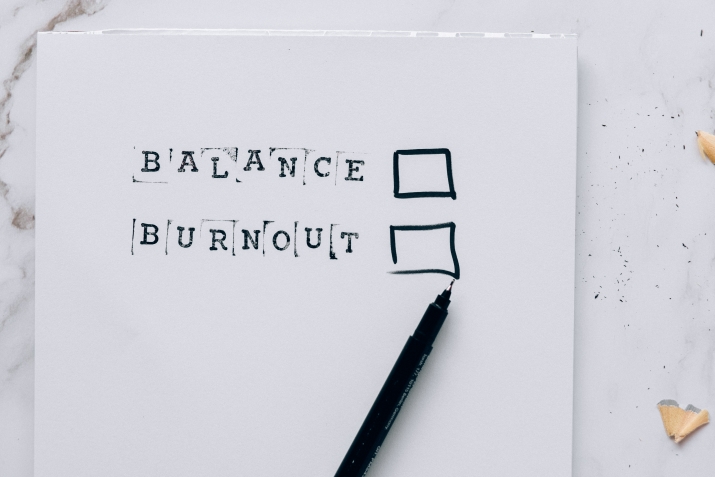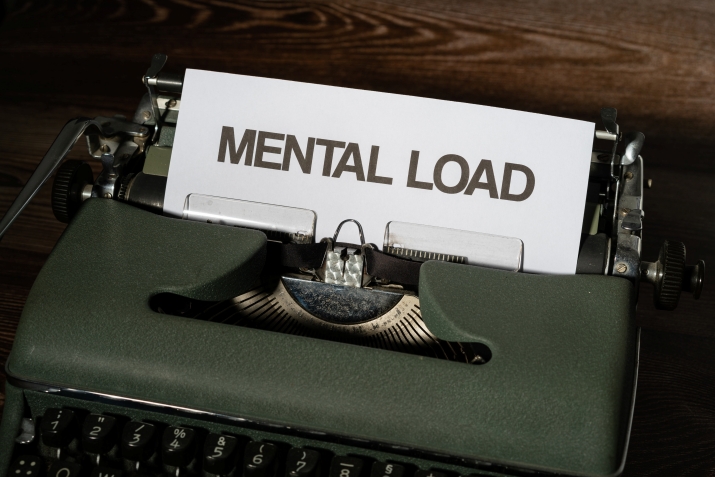
Stress Management: How To Manage Stress in Your Daily Life
Table of Contents
Disclaimer: Always seek professional help with any questions you may have regarding stress management.
If you’ve been looking for tips on stress management, you’ve come to the right place. In this article, we’ll give you information about stress management and give you some tips to get over it.
By trying some stress management methods, you can increase your mental resistance and become more motivated to continue with your life. Especially long-term stresses are very harmful to people, and it’s very important for health to be able to overcome this stress.
We know, some periods are beyond our powers and we may experience periods when we feel very stressed. Moreover, this affects our daily life a lot. But don’t worry, there are ways to get over it. Without further ado, let’s begin our article on stress management.
Managing Stress: Why Is It Important?
First of all, any type of stress carries certain risks for people. It’s not good for mental and physical health. However, high-level stress is much worse. Often the mental effects outweigh the physical effects, even if one doesn’t realize it. For example, you cannot think, work effectively, or enjoy anything you do. So, it affects you a lot.
You may feel unable to do anything. You may feel like your responsibilities will never catch up, and you’ll never be able to be with your family or friends as before. But no! We’ll do our best to help you with this article. But, you should also know that because of stress, you haven’t lost as much control over your life as you thought. There are things you can do.
Moreover, if you manage to effectively manage stress, you can now become a happier, more cheerful, and more relaxed person. You can achieve a balanced life. You can work more effectively at your job and then spend time with your family or friends. And, this is why stress management is so important. No worries, you’ll beat the stress!
If you don’t have a high level of stress, this might even be fine. However, any stress that you feel is hurting you is harmful. We’ll go into more detail in a moment, but in general, here are some common things you can do to control and reduce your stress level:
- Try to look at life positively.
- Realize that you can't control everything in life.
- Value your feelings.
- Stay away from negative thoughts.
- Have limits in your life, and be able to say no to the things you don’t want.
- Have your hobbies.
- Try to eat healthily.
- Family time is crucial. Spend time with your loved ones.

Stress Management Tips
There are certain tips that we can apply in our lives for stress management. These can help create more flexibility in our lives and help us relax. Let’s start looking at the tips that we’ll give you.
Trying to understand how you deal with the stress you experience
We all experience stressful situations from time to time. The stress levels experienced are different for everyone. Another important difference is how people deal with this stress.
Therefore, the first tip we’ll give you is to try to make sense of the situation you’re facing. If you try to understand and interpret your reactions to this stress you experience, this will help you be more careful in the stress you’ll experience in the future.
There are certain questions you can ask yourself about this. Create a case study in your mind and ask questions about it and give answers. Questions could be:
- Do you feel you’re escaping from this stressful situation?
- Feeling sad but trying to suppress it? Or are you showing your emotions?
- Have you tried somehow to distract yourself from this stress? Like eating, playing games, or going out and getting some air.
- Have you tried to look at this event positively? Or, are you completely pessimistic?
- Are you talking to yourself?
- Have you sought any help? Like going to therapy, talking with a friend, or writing.
Now, think about your answers to these questions. Try to better understand the stress you’re experiencing. Measure your reactions.
Get down to the source of your stress
One of the most important steps to reduce stress is to try to figure out why you’re experiencing this stress. That is, getting to the root of the problem. We’re aware that doing this is not as easy as saying it. But, it’s not impossible either.
Difficulty can also vary depending on the problem. For example, if you start experiencing stress after changing jobs, it’s easy to find the source. Trying to adjust to a new job is a stressful process. Unfortunately, some sources of stress can be more complicated than these. Such stresses are more commonly referred to as chronic stress. It’s also more complex to solve. Sometimes you can’t even see the damage that this type of stress creates on you.
For example, you may be feeling very stressed because you think you can’t get the job done at all. But maybe the problem isn’t the multitude of things, it’s that you’re too detailed.
There are some questions you can ask yourself to identify your sources of stress, such as:
- Do you think this stress is temporary? Or, do you feel like you’ll always live with it?
- Is this stress something your life brings or is it part of your personality?
- Do you think the cause of your stress is other people, or does it have nothing to do with people?
Thanks to these questions, you can solve the source of your stress, for example, you’ll definitely find answers to some of the excuses you produce. This is a very important step for stress management. After solving the source of stress, you can take more courageous actions to get rid of it.
Move on
First of all, proper and enough sleep is essential in terms of stress management. Many experts state that people who do physical activity and exercise sleep much better than those who don’t. At this point, the only thing you need to pay attention to is not to do the exercise close to bedtime because this can disrupt sleep patterns.
Good sleep means good mental health, but the benefits of exercise don’t stop there. Physical exercise undoubtedly leads to better mental health. People who exercise regularly tend to be less nervous and less irritable in daily life. To feel calmer, that is, to control stress, the body must also feel good. So, try not to neglect exercise.
If you don’t have time to go to the gym and exercise, or if you can’t go out and take regular walks, don’t worry. You can turn some of the activities you do in daily life into a kind of physical exercise. For example:
- Use a bicycle to go shopping.
- Use the stairs instead of the elevator in your office or home.
- Park your car away from the entrance gate so that you’ll walk a little before you arrive.
- Wash your car. It may sound weird but it’ll work the body.
- Clean the house at regular intervals.
- Try to take a short walk during your lunch breaks.
Take a break from the hustle and bustle of life
Our lives pass within the framework of responsibilities. For good stress management, it’ll be good to take some time off from these responsibilities from time to time and take time for yourself to have fun and a positive attitude. Do you ever notice that you don’t take any time for yourself while you’re running around to work all the time? Remember, doing something for yourself is a necessity, not a luxury. If you have time for yourself in your life, you’ll be much more successful in managing stress.
Make sure you create free time for yourself during the day. This could be going for a walk during your lunch break, or just lying down for a while when you get home. There should be some time during the day to relax. This way, you'll reduce stress, you’ll regain your energy and you’ll be less stressed.
You can turn this into a fun activity, for example, an activity per day. Ride a bike one day, go to the cinema one day, and sit down and read your favorite books on another day…
Also, watch or read funny things. Laughing is very good for people. While laughing, the human body releases the hormone of happiness, which is very helpful in reducing stress and anxiety.
Besides all this, you can consider meditation. Activities such as yoga and meditation are good for learning to breathe properly. Deep breathing and breath balance are also very important for stress management. These activities relax your mind.
Eat Healthily
If you think that healthy food is only good for you physically, you’re wrong. Eating healthy is very important for our mental health as well as our physical health. You can make stress management easier with a healthy diet. In addition, eating a healthy diet strengthens your immunity and regulates your blood pressure. All of these are also good for your mental health, which means good for your stress management.
The opposite situation, namely eating unhealthy, can be much more harmful than you think. Eating too much fast food, and consuming sugary and fatty foods adversely affects mental health, which makes you more stressed. The downside is that most people turn to unhealthy foods more when they’re stressed.
For a healthy diet, you can add antioxidants to your diet as well as foods we know such as fish, eat, and nuts. Antioxidants, which you can find in fruits or spices, protect the body against stress thanks to the substances they contain.
We recommend that you go shopping with a list to eat healthily. It’s not good to go to the market on an empty stomach. Go on a full stomach and stick to your list while shopping. If you carry your healthy snacks with you when you go out, you’ll not have to buy fast food when you’re hungry.
Get your time right to create a work-life balance
Work-life balance and correct timing are very important because the most common sources of stress are their absence in life. When you’re constantly rushing from task to task, you cannot stay focused, you lose your creativity. Also, are you aware of what you’re missing in your life? You don’t spend enough time socializing, you forget to enjoy the little things. So, having a healthy work-life balance is one of the most important ways to reduce stress and anxiety. Moreover, there are some methods you can use to get it.
- You should give yourself enough tasks: Think carefully about the tasks you can do for one day and assign only the tasks you can complete that day.
- Make a list: It’s good to list the things you’ll do during the day. Be realistic. Otherwise, it’ll cause you stress when that task isn’t done.
- Divide overwhelming tasks: If you find it difficult and burdensome to do a task, try diving it into several parts or days.
- Ask for help: You don’t have to do everything alone. A person should know how to ask for help from others when necessary.

Related Articles
How Do We Control Stress at Work?
The issue of stress is something that many workplaces need to consider more because high-stress levels are a troublesome situation for employers as well as employees. Stressed employees can’t work effectively and can’t be creative enough. In addition, the presence of stressful people in the workplace negatively affects the atmosphere of the workplace. Therefore, the tips we’ll give below are for employers. By applying these tips, you can have a much more peaceful environment at work. So, what are the ways you can follow to stress management at work?
- Psychological security must be created.
- Employees should have regular breaks.
- Special work areas should be created, these could be special areas where staff can pass and focus when they’re distracted.
- Make sure employees have a work-life balance.
- If remote work is involved, have flexible working principles.
- Make sure your employees are in the right positions. Employees should be doing the job they want in the positions they want. Make them feel that you support them.
- Increase the self-confidence of employees by giving them various projects.
How To Manage Stress: The Wrap-up
There you have it. A guide on how to manage stress, some relaxation techniques, healthy ways, and tips to deal with stressful situations…
You can increase your mental resistance and motivation to continue with your life by experimenting with some stress management techniques. Feeling anxious all the time and long-term stress, in particular, is very harmful to people, and it is critical to be able to overcome chronic stress before it leads to a serious illness.

